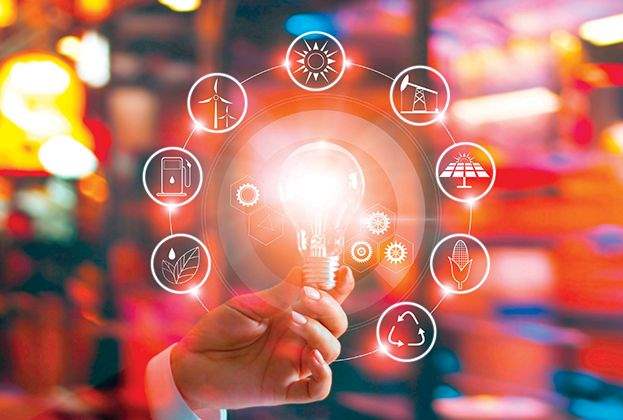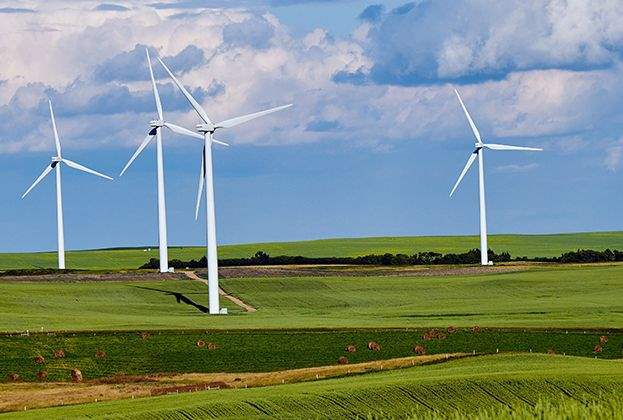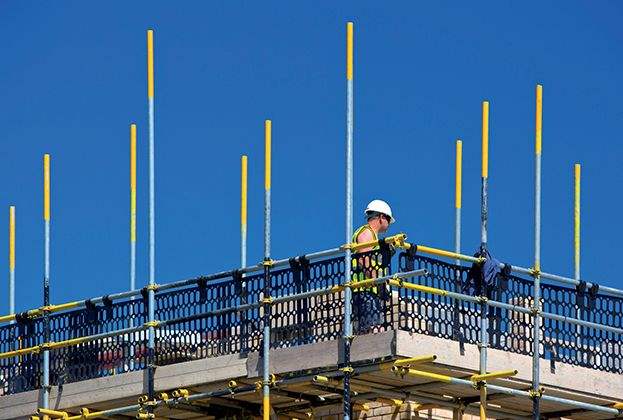Meeting our climate targets and lowering pollution levels are goals that can be resolved by using low or zero carbon sources to power our homes, businesses and cars.
We talk to four experts to see what changes they see on the energy horizon in the coming years:
.jpg)
Lord Deben, Chairman of the Committee on Climate Change
Rapid uptake of electric vehicles
"In 2015, nations of the world came together to push for greater action to tackle climate change. The UK has made some progress: greenhouse gas emissions are down 43% since 1990. But more action is needed if we’re to move towards a zero carbon economy in line with the UK Government’s stated ambition. 2019 is a crucial milestone on the road to net zero. This spring, the Committee on Climate Change will advise the Government on the feasibility of that transition and the date by when it should be completed.
“In terms of our energy use, a zero carbon economy implies much more rapid uptake of EVs. It will also require new housing standards that minimise energy use in new homes. And it will mean more action to improve energy efficiency and a switch to low carbon sources of heating in existing homes.
“There is good news: emissions from electricity generation have halved in just five years and last year a record 50% of UK electricity came from low carbon sources. But progress on carbon capture and storage technology has stalled, and we’ll need to see more investment in the cheapest forms of renewable energy if this trend is to continue. The challenge is clear: if we’re to clean up our economy and tackle climate change, the way we power our cars and homes will need to change for good."

Neil Clitheroe, Global Retail Director of ScottishPower
Smart meters: an essential change
"At Scottish Power, we’ve already made the transition to renewable energy so now the focus is on helping customers join the decarbonisation journey. That starts with the way we use energy in our homes and the cars we drive. Fundamental to this is the roll out of smart meters. So far, it’s been challenging (meters are largely located inside homes) but they offer consumers much more control over the cost of the energy they use and provide suppliers with much-needed information about how to better manage demand.
“Many predict that by 2023, the cheapest cars on the market will be EVs and smart meters are essential to owners because you can plug in the charger at home over night and, when the tariffs drop to the cheapest levels, the meter will tell the system to start charging. We’ve just launched a tariff which, based on this premise, will allow anyone who already owns an EV to cover 6,000 miles a year for just £62 – about the cost of a single tank of diesel."

James Sparrow, CEO Savills UK & EMEA
Sustainability opportunities
"As a company, we take our CSR obligations very seriously, by not only fulfilling our statutory obligations, but by also furthering our own internal projects, policies and programmes worldwide.
"Savills has been tracking its own progress on sustainability metrics since 2013, and as a global property business, Savills is at the forefront of designing, building and selling real estate assets on behalf of a client base that is increasingly motivated by the environmental and social impacts of their investments. We welcome their focus on the positive impact that property assets and targeted investment choices can deliver, and see increasing evidence of this driving innovation in all property sectors.
"Energy is a common demand across all of our property divisions, and Savills now has substantial expertise in our Energy division, with specialisms covering everything from on-farm renewables to energy procurement for commercial property.
"In the context of sustainability assessments, energy usage has perhaps been the easiest metric to assess and monitor. Externally, energy production has been driven by a policy agenda that has tried to diversify energy resources towards renewables, and this has enabled us to seek better returns and cleaner investments for all of our energy customers.
"In the UK, for offices where we are responsible for procuring energy, in 2018 we moved 100% of electricity tariffs over to green tariffs.
"With increasing demand on limited resources, it’s clear that both energy and sustainability are huge motivators in finding opportunities and minimising risk to investment portfolios."

Dr Nina Skorupska, Chief Executive of the Renewable Energy Association
Capturing the decarbonisation dividend
"The future of energy lies, of course, in renewables. Anyone who is thinking that the world of renewable energy and clean technology is sometime in the future is out of date. That tomorrow is already here. Having to move to a low carbon future isn’t just an option, it’s a must. The challenge is how to capture the decarbonisation dividend.
"Making our homes warm and energy efficient is a priority. Those that we call the 'first movers' (or early adopters) are already taking advantage of the technologies that are currently available and are enjoying lower energy bills at home. Everyone needs to be able to take advantage, particularly owners of existing houses. This is a key point: 80% of the housing stock in 2050 has already been built. We need to make sure owners of older houses know how to decarbonise, without sacrificing the aesthetics of our period buildings.
"The excitement is growing about electric vehicles [EVs] but we need connected thinking. Eighty per cent of owners of electric vehicles charge them at home, but only about 60% of households have access to private parking. Consumers also need to know how to charge their EV at the lowest price using a renewable energy source. We need to give people the choice and chance to change their habits that could both benefit them and the climate at the same time. Change is scary so what we have to do in the next one or two years is help everyone understand their choices otherwise they will miss out but more importantly our planet will miss out too."
.jpg)





.jpg)